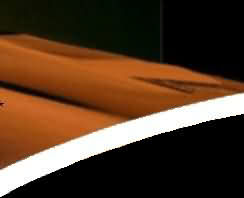





International Symposium on
Drylands Ecology and Human Security


© 2006 NDRD Imprint Disclaimer

|
Decomposition and Nutrient Release from Selected Agroforesty Tree Litters A.R. Mubaraka,*, N. A. Elbashira, L. A. Elaminb, D. M. A. Daldouma, D. Steffensc and G. Benckiserd aDesertification and Desert Cultivation Studies Institute bDepartment of Environment and Soil Sciences, Faculty of Agriculture cInstitute of Plant Nutrition, Interdisciplinary Research Center for Environmental Research, (IFZ) dInstitute of Applied Microbiology (IFZ), Giessen, Germany
In Sudan, tree plantations remain the first choice and are widely used in protecting arable lands from sand movement. Also, tremendous litter from horticultural tree gardens can be used as a source of improving organic matter in the dry arid tropics of Sudan. Two separate litterbag experiments (12 weeks) were conducted to monitor decomposition and nutrient changes from leaves of some agroforestry trees (Eucalyptus microtheca, Ficus spp. and Leucaena leucocephala) and litterfall from horticultural trees of guava (Psidium guajava) and mango (Magnifera indica). Rate of dry matter weight loss from guava (0.098 wk-1) was significantly faster compared to mango residues (0.04 wk-1) (P 0.01). Corresponding values for Leucaena, Eucalyptus and Ficus were 0.0533, 0.0524 and 0.0438 wk-1, respectively. Potassium was the only element found to be consistently and very rapidly released from all litters. Nitrogen was released at a significantly higher rate from Leucaena (0.0558 wk-1) compared to Ficus (0.0399 wk-1) and Eucalyptus (0.0301 wk-1) (P 0.03). Nutrients from the litters were released in the order of K P = N Ca Mg. Micronutrients generally tend to accumulated during the period of decomposition. The results allow to conclude that Ficus and Mango leaves are suitable for improving arid soil quality by enhancing soil organic matter and by releasing S while litter from guava is suitable for temporary nutrient correction. Mixing guava with mango residues may slow decomposition for improving the soil organic matter contents and soil fertility in the long run. Keywords: Decomposition; litter; nutrient change; semi-arid; Sudan |